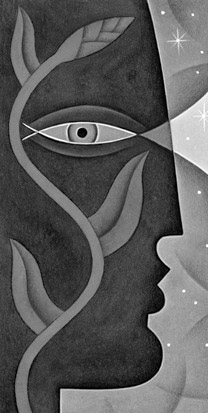JUDAH

People who are leaders stand out. They don’t necessarily look or act a certain way until the need for their action is apparent. Among their skills are outspokenness, decisiveness, action, and control. These skills can be used for great good or great evil. Jacob’s fourth son, Judah, was a natural leader. The events of his life provided many opportunities to exercise those skills. Unfortunately Judah’s decisions were often shaped more by the pressures of the moment than by a conscious desire to cooperate with God’s plan. But when he did recognize his mistakes, he was willing to admit them. His experience with Tamar and the final confrontation with Joseph are both examples of Judah’s willingness to bear the blame when confronted. It was one of the qualities he passed on to his descendant David.
Whether or not we have Judah’s natural leadership qualities, we share with him a tendency to be blind toward our own sin. Too often, however, we don’t share his willingness to admit mistakes. From Judah we can learn that it is not wise to wait until our errors force us to admit to wrongdoing. It is far better to admit our mistakes openly, to shoulder the blame, and to seek forgiveness.
Strengths and accomplishments |
|
Weaknesses and mistakes |
|
Lessons from his life |
|
Vital statistics |
|
Key verses |
“Judah, thou art he whom thy brethren shall praise: thy hand shall be in the neck of thine enemies; thy father’s children shall bow down before thee. Judah is a lion’s whelp: from the prey, my son, thou art gone up: he stooped down, he couched as a lion, and as an old lion; who shall rouse him up? The sceptre shall not depart from Judah, nor a lawgiver from between his feet, until Shiloh come; and unto him shall the gathering of the people be” (Genesis 49:8–10). |
Judah’s story is told in Genesis 29:35—50:26. He is also mentioned in 1 Chronicles 2—4.